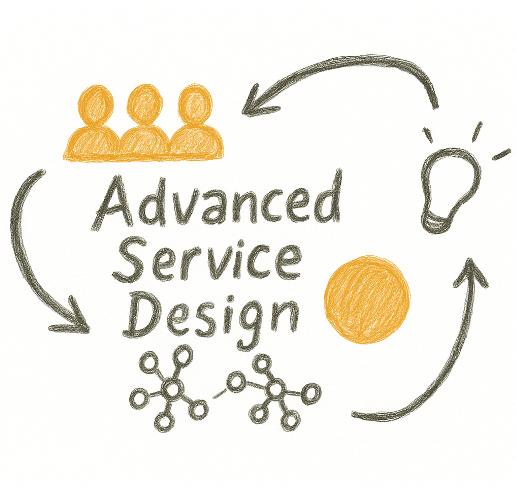Centralt i kursen är ett problembaserat lärande i form av tjänstedesignprojekt som studenterna genomför i samarbete med en uppdragsgivare.
Arbetet genomförs i grupper som erbjuds kontinuerlig handledning. Handledningen skapar möjligheter för feedback kring designprocess och kontinuerlig uppföljning av lärandet.
Föreläsningar, övningar och litteraturstudier ger bakgrund och kunskap till studenterna under arbetets gång.
Färdigheter som tränas och kursens ämnesinnehåll omfattar:
• teori, fallstudier och bakgrund till området
• hållbarhetsdimensioner och hur dessa kan appliceras i utvecklingen av tjänstekoncept
• tjänstedesignprocess och metoder som intervjumetodik, empirianalys, kundresa, syntetisering och framtagande av triggermaterial
• konceptutveckling av ett tjänsteerbjudande som tydligt kopplar till insikter kring brukares upplevelser och behov
• visualisering och kom
